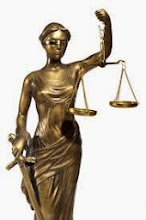-------------------------------------------------------------------------------------
Request for Review of CEC Decisions
--------------------------------------
(1) Registration approval of DMK on 18/9/1989
(2) Registration approval of AIADMK on 25/9/1989
Dated: August 28th, 2008
From:
Rajendran Chingaravelu
Plot# 188, Road No: 21A, Prashasan Nagar
Jubilee Hills, Hyderabad – 500 033, AP, India
To:
The Hon’ble Chief Election Commissioner
Nirvachan SadanAshoka Road, New Delhi-110001 Tel: 011-23716552/ 23713689
Dear Honorable Chief Election Commissioner,
I am sorry to bother you with this letter. As you know Election Commission has been made responsible for taking care of the foundation of our democracy and I admire and applaud the stellar job that this fine institution has done recently. I especially like all the bold moves by the commission in enforcing democracy. I understand the preciousness of your time and I assure you that you will not feel like I have wasted your time after you finish reading this letter as I am trying to do something about a fundamental problem associated with most political parties that prevents better political participation from the educated citizens of this country.
I recently received a copy of the rules and regulations (from CEC) governing the following two political parties in Tamil Nadu:
1. Dravida Munnetra Kazhagam (DMK)
2. All India Anna Dravida Munnetra Kazhagam (AIADMK)
Upon careful perusal of both of them, I found that they both have almost identical rules and regulations governing their operations to a large extent. They both seem to have decent process defined for electing members of administration of the party using fairly democratic process. Yet I know for a fact that the top level leadership have had no democratic penetration whatsoever in the last @40 years which is pretty much held by one person (in DMK it is Mr. Karunanithi & in AIADMK it was Mr.MGR, after his death, now Ms.Jayalalitha).
These top leaders are never replaced with another leader solely because the democratic process for the selection of President and General Secretary of the party apparently is not working, to say the least. Upon careful analysis of the entire document, I have realized that the primary reason for the failure of democratic process in the selection of top leaders of these parties is primarily due to the control they have over the selection of candidates for the State Legislature and Parliamentary elections. This I believe is the crux of the problem.
Please take a look at the Rule 29 in both parties’ Rules and Regulations (Party Constitution). All the sections under Rule 29 (Parliamentary Board) guarantees anything but democratic process; to elect the candidates for the State Legislature and Parliamentary elections. I am saddened to see that almost all processes to elect the office bearers of the party below the Headquarters seem reasonably democratic except this one! I strongly believe that this is the ONLY reason, a public funded non profit organizations/political parties such as DMK & AIADMK are being run like private organs of specific individuals or family!
As you know, people participate in political parties mostly because they have aspirations to ultimately participate in the government and thus the ability to contest elections for the State Legislature and Parliamentary elections is probably the most and the only drive that these folks have due to which they participate in the political party activities and become members and office bearers of the party. But if the selection of the candidates for State Legislature and Parliamentary elections becomes monopolized by the top echelon of the party then they all will have no option but to support whoever is at the top!
The so called ‘Parliamentary Board’ in both parties are single handedly constituted by a single office bearer of the party which is totally undemocratic and is a complete violation of Section 29A (5) of the Representation of the People Act, 1951. There are instances in which the Hon’ble Supreme Court has clearly observed that the Election Commission can cancel the registration of a political party if their operations/policies/actions are found to be in violation of the above section.
Hon’ble CEC has approved the registration of DMK on 18/9/1989 and AIADMK on 25/9/1989 as per section 29A of the Representation of the People Act, 1951. I have a copy of both decisions and have perused the same. The one page decision in each case simply states that the respected CEC has satisfied that the party has met the requirements per section 29A but unfortunately it fails to provide as to whether or not they have complied specifically with section 29A(5) &(7) of the Representation of the People Act, 1951.
It was my belief that the Hon’ble Election Commission had the authority to take actions or reject party registration should the party and their constitution (rules and regulations) does not comply with Section 29A(5) Representation of the People Act, 1951.
I request the honorable CEC to answer the following:
1. Does Rule 29 (Parliamentary Board) of Rules and Regulations of DMK and AIADMK comply with Section 29A (5)? i.e do they live up to the spirit of the democracy required per section 29 A (5) of the Representation of the People Act, 1951? If yes then please explain how.
2. If the answer to the above question is No, then shouldn’t the honorable election commission cancel the registration of both of the above parties per section 29 A (5) & (7) of the Representation of the People Act, 1951?
3. Are political parties required to provide CEC information about the contestants and the votes secured during the party headquarters (President & General Secretary) elections?
Sincerely
sd/-
Rajendran Chingaravelu

No comments:
Post a Comment